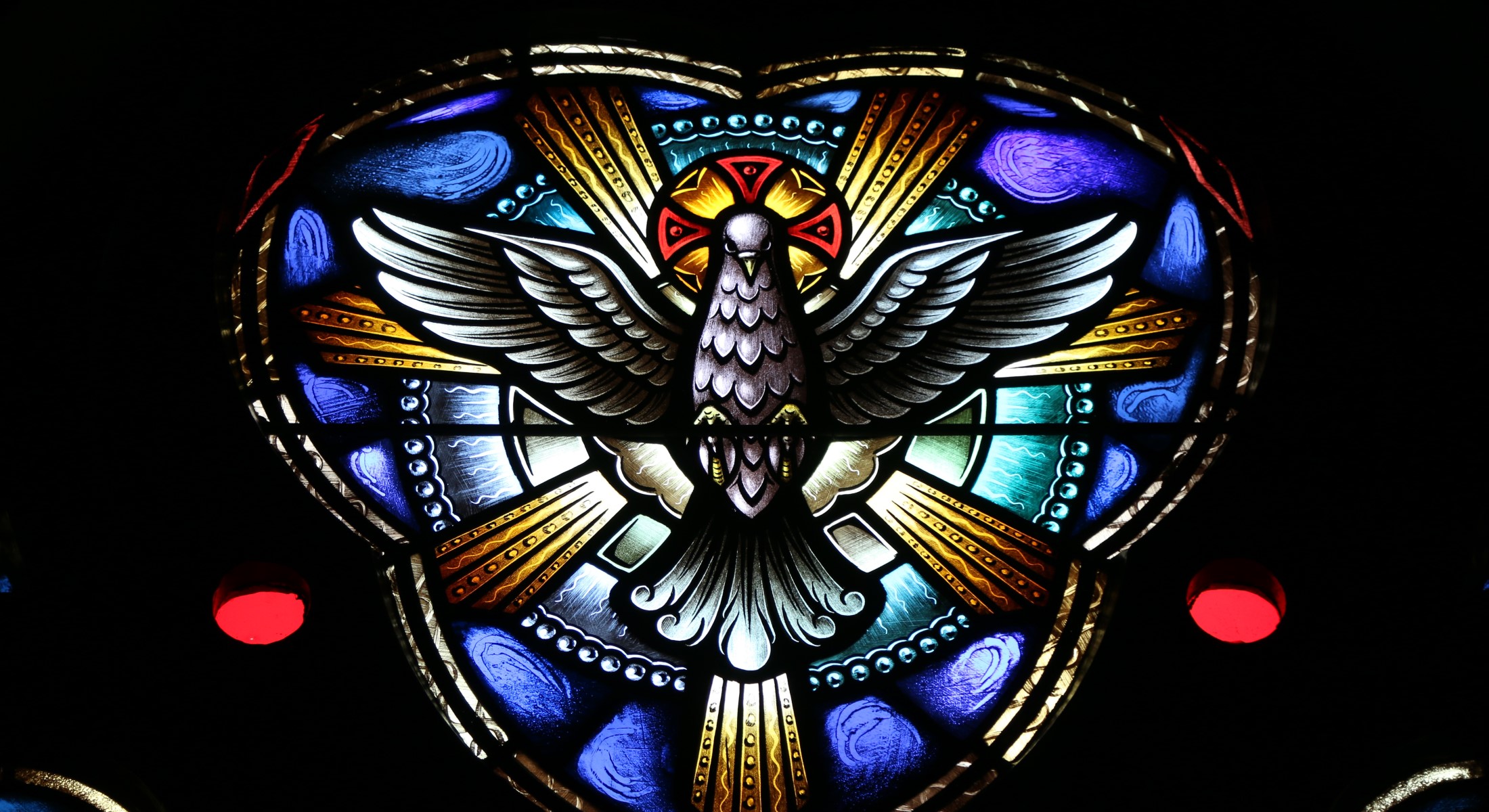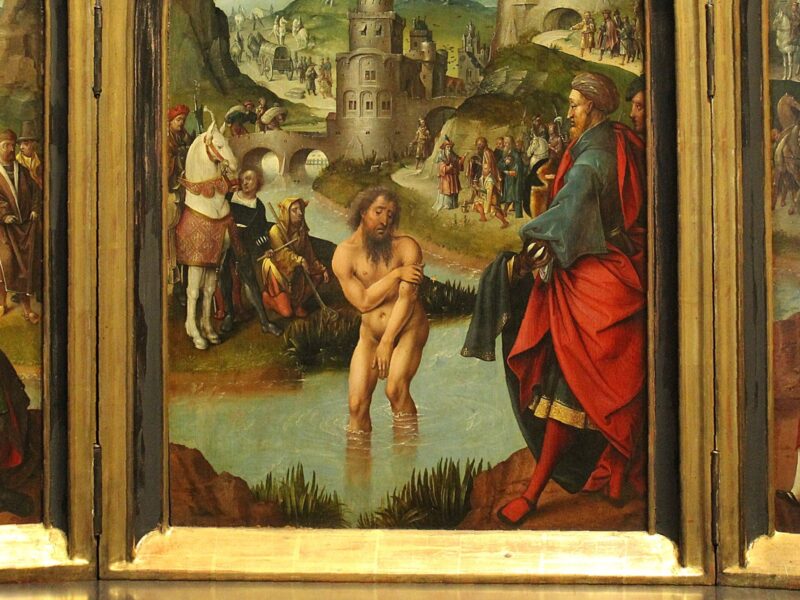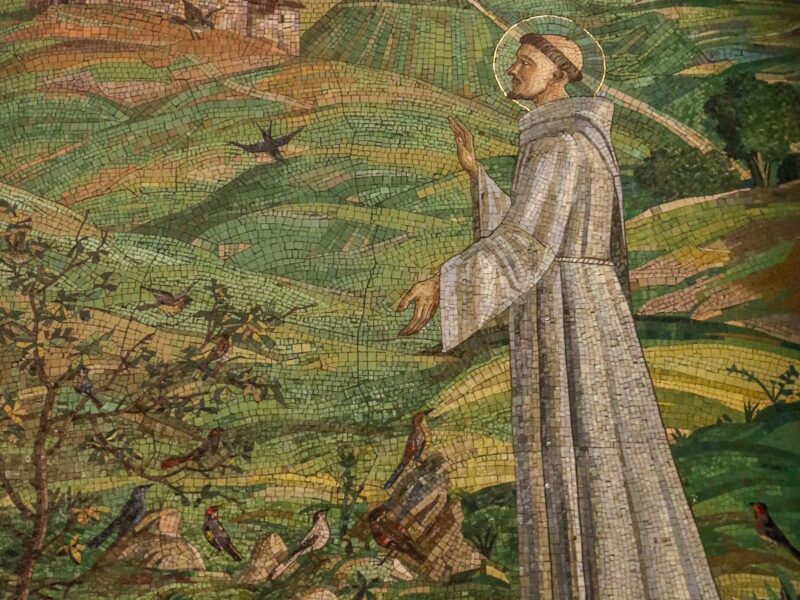
People of Peace
Sixth Sunday of Easter. Fr Peter Harries reflects on the role of the Paraclete in bringing peace to the Church and to the world.
‘Peace be with you all’: Pope Leo XIV’s first words to the assembled faithful in Saint Peter’s Square, to enthusiastic crowds waving a myriad of flags. People of many languages, many nations but (almost entirely) of one faith, one heart, one love of our Saviour Jesus and affirming our new Vicar of Christ, the successor of Saint Peter.
In today’s gospel reading, set during the last supper, Jesus’s last meal before his death, he tells his disciples: ‘Peace I leave with you. My peace I give to you’. Two thousand years later the world, sadly, is not at peace. Ukraine, Sudan, Nigeria, and the very lands where Jesus walked and taught, are all riven by war and conflict. Our cities harbour great edifices of mercy and truth, like hospitals and schools. But our cities and our homes are also places where exploitation and violence flourish. The Church itself has tensions. Bitter words criticising our new Pope and his faithful preaching of the Gospel have already been texted and tweeted. So what about peace?
Our first reading is a severely shortened account of the Council of Jerusalem (as it is known). The traditionalists – for want of a better term – wanted non-Jewish Christian men to become Jewish by circumcision. This insistence, and the refusal of convert men to be circumcised, was causing a massive problem in Antioch, the third most populous city of the Roman Empire, where the church was evangelising and flourishing. Were the non-circumcised men properly Christians like the Jewish converts, or were they second class? The apostles and elders gathered in Jerusalem under the inspiration of the Holy Spirit, decided otherwise. The Holy Spirit was given to Peter and the other elders, and, we as Catholics believe, given in a special way to the bishops, successors of the apostles ever since. The Council decided that non-Jewish male converts to Christianity did not need Jewish circumcision. God’s love and forgiveness now also operated within a new community, the Church.
As an aside, the Council did make four stipulations, three about pagan food sacrifices and one about sexual immorality – which may be a coded reference to marriages between very close relatives. Remember Cleopatra the almost contemporary Queen of Egypt – she had married her brother!
So if we experience debate and tensions in the Church then this has been the case from the beginning. Perhaps it is a contrast to the vision of the heavenly city in our second reading from the Apocalypse. The holy city, the heavenly Jerusalem, radiates God’s love and his glory, like crystal and jasper. Twelve gates, twelve foundations and twelve apostles, twelve symbolising completeness and perfection. No temple, because it is lit by the glory of God.
Jesus tells the apostles that his peace is not of this world. Jesus will indeed leave them, and they will abandon him at least temporarily. However after the Resurrection and their encounters with the risen Christ, the Holy Spirit, the Advocate, the Paraclete will come upon them so that they might be people of peace, preachers of peace. The Paraclete, Jesus promises them, will teach them many things. The Paraclete – unlike the noisy invasive parakeets here in London NW5 who squawk loudly, driving away the native birds – the Paraclete unites, not divides. One city with twelves gates, unity and a certain diversity.
But how do we live in peace? By keeping God’s word, so that God will love us and dwell in us. This sounds simple but often gets complicated as we live it out in our lives. Should we renounce imposing our will on others? Great, but sometimes we may have to stop other people damaging the environment. Love our neighbour. Yes, but we may need to enforce limits so that we are not exploited by them. Renounce violence. Yes, but we may have to protect the vulnerable.
If we are honest we all live in a world compromised by violence. Does that stop us trying to live as people of peace? No. Our new Pope, like his predecessors, blesses us to be people of peace. When we fail, we know that God is a God of mercy and will forgive us as we turn to him, as Jesus tells us in the parable of the Prodigal Son. But peace should be characteristic of our words and deeds.
Readings: Acts 15:1-2, 22-29 | Apocalypse 21:10-14,22-23 | John 14:23-29
Image: from a stained glass window at St Dominic’s in Washington DC, photographed by Fr Lawrence Lew OP



Marion Jordaan
Thank you for a thought provoking, great homily. It is so true, We live in a world comprised by violence. I |find this most distressing. (Marion, South Africa)
Msgr. Cuong Pham
Thank you Father for this powerful homily. I find it very helpful and illuminating. God bless you for sharing your insights.
Michael
Yes me too Peter thank you for bringing more light on these familiar texts.
What a great Council Jerusalem was having to agree on such a huge shift away from the very fundamental covenantal law of circumcision and all by Jewish men ( I hope women too) – makes many a subsequent council sound a lot tamer.
I think our Eastern churches have a lot of help for us too in the prominence of the Holy Spirit in their worship.
We can make a lonely figure of the Son of God here in the West without the Helper Holy Spirit.